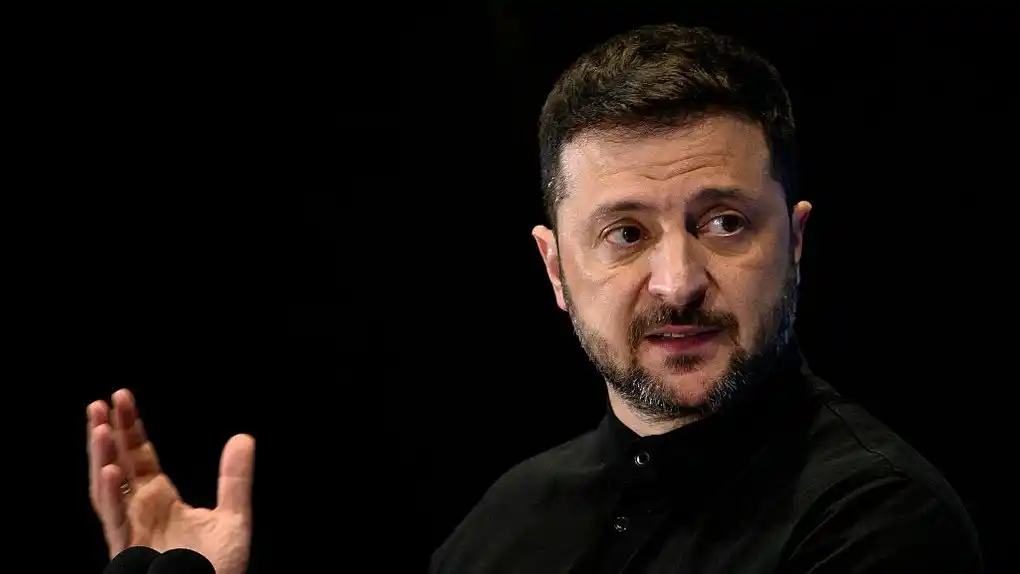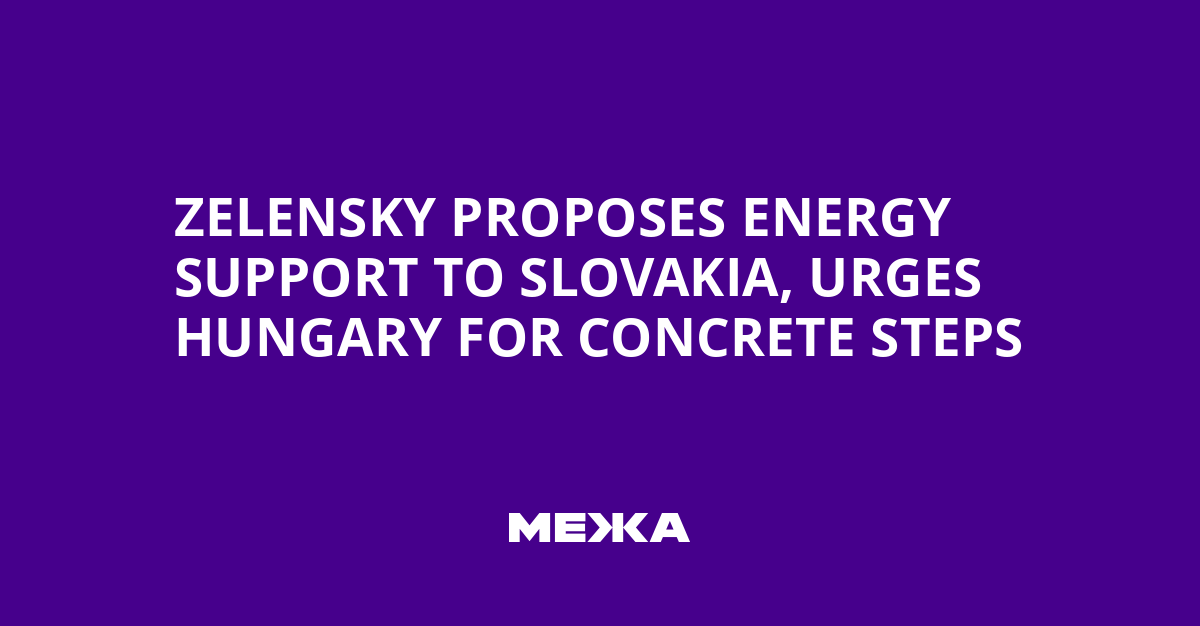
The President of Ukraine, Volodymyr Zelensky, during a briefing on the sidelines of the Ukraine Recovery Conference, Rome, Italy, July 10, 2025. Getty Images/Antonio Masiello
According to the European Commission, in May 2022 the REPowerEU plan was presented, aimed at ending the EU’s import of Russian oil and gas by 2027.
President Volodymyr Zelensky said that Kyiv is ready to propose Slovakia alternative steps for energy support and diversification of supplies. Ukraine is also considering similar initiatives for Hungary, but Budapest has not yet taken concrete steps.
“Slovakia is one of those countries. We are ready to help it with alternative supplies, but not with oil and gas from Russia”
– President of Ukraine Volodymyr Zelensky
He added that an intergovernmental meeting with Slovakia is expected in October, during which Ukraine will propose concrete steps of energy support.
Zelensky also noted readiness to discuss energy issues with Hungary.
“But on their side I hear no steps, except media signals of support for Ukraine. And we also see reconnaissance drones. Therefore I do not see any positive moves toward us from the Hungarian leadership. But, of course, we are always ready for dialogue”
– President of Ukraine Volodymyr Zelensky
He added that meetings with the Hungarian side also require concrete actions, and not just statements of support.
In the context of geopolitics within the EU, Hungarian diplomacy previously stated that Budapest would not renounce Russian oil, which was discussed within the framework of implementing the EU’s energy strategy. Currently Hungary and Slovakia continue to import oil from Russia via the Druzhba pipeline, amounting to about 200–250 thousand barrels per day, or roughly 3% of the EU’s demand.
On September 22, the European Commission announced that under the 19th package of EU sanctions there are no plans to halt oil deliveries via the Druzhba pipeline. At the same time, in September 2024 the EC reviewed mechanisms for diversification of supplies and support for the transition to renewable energy by 2030, and considerations of joint gas and oil procurement were discussed. According to reports, Slovakia and Hungary oppose parts of the REPowerEU plans due to economic risks and the impact on the country’s energy security.
Zelensky noted that Kyiv continues to seek constructive solutions with partners on energy independence and ensuring stable supplies, while urging the EU to take active steps toward diversifying supplies and joint purchases to reduce Russia’s influence.
Context of engagement with the EU and future steps
In light of European energy policy, Kyiv focuses on practical solutions: diversification of supplies, joint purchases, and support for the transition to clean energy. Ukraine calls on partners to intensify dialogue and develop concrete actions that strengthen energy independence and reduce dependence on imports from Russia.
A key remaining task is coordinating with EU member states on diversification pathways and intensifying joint purchases to ensure more stable and transparent energy chains for the region. In Kyiv, they emphasize that constructive dialogue with partners should be accompanied by concrete decisions, not just statements of support.
